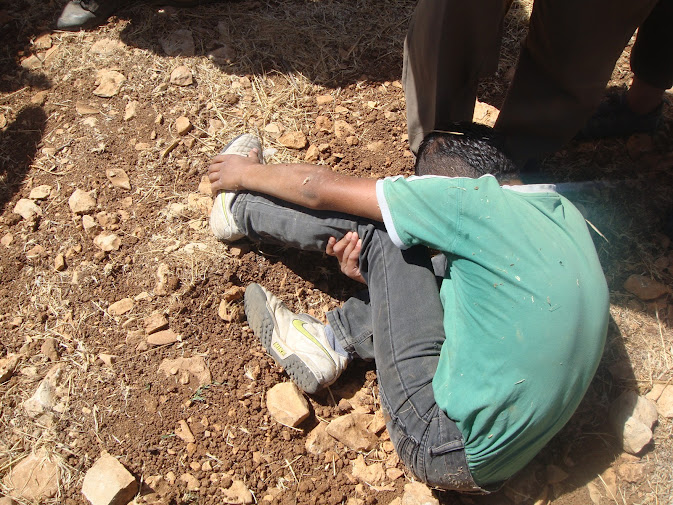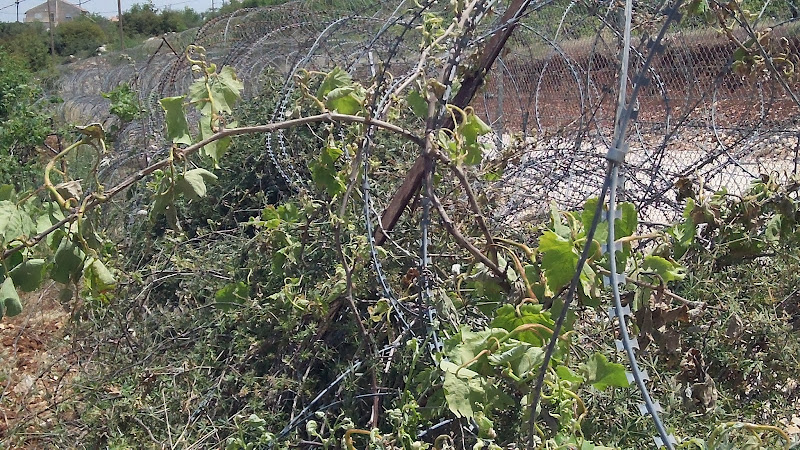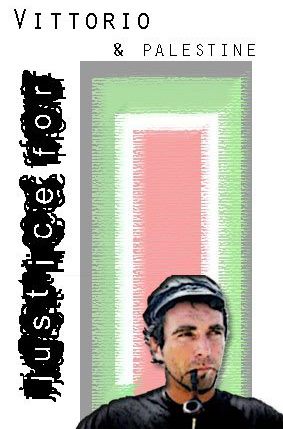Tag: Beit Ummar
-
Israeli soldier kicks 12 year old Palestinian boy, after peaceful demonstration in Beit Ummar
By Ellie 9 September 2012 | International Solidaity Movement, West Bank Palestinian, Israeli, and international activists gathered in Beit Ummar for the village’s regular Saturday demonstration against the nearby illegal Israeli settlement of Karmei Tsur, which has annexed village land. The demonstration focused on the August 27 destruction of a new Beit Ummar greenhouse by…
-
Karmei Tsur: Poisoning the vine with Zionism
by Joseph 7 May 2012 | International Solidarity Movement, West Bank When Ali Awad visited his orchard on Friday morning before the midday prayer he noticed nothing out of the usual. But eight hours later, when he returned to his land in order to gather grape leaves to sell in the local market, he…
-
West Bank activists remember the life of ISM justice Activist Vittorio Arrigoni
by Sydney 16 April 2012 | International Solidarity Movement, West Bank Palestinians and International activists celebrated with the spirit of Vittorio Arrigoni this week across Palestine. Memorial events were held to mark the one year anniversary of his murder: two in Al-Khalil (Hebron) with members of the Hebron Defense Committee and Youth Against Settlements and…



